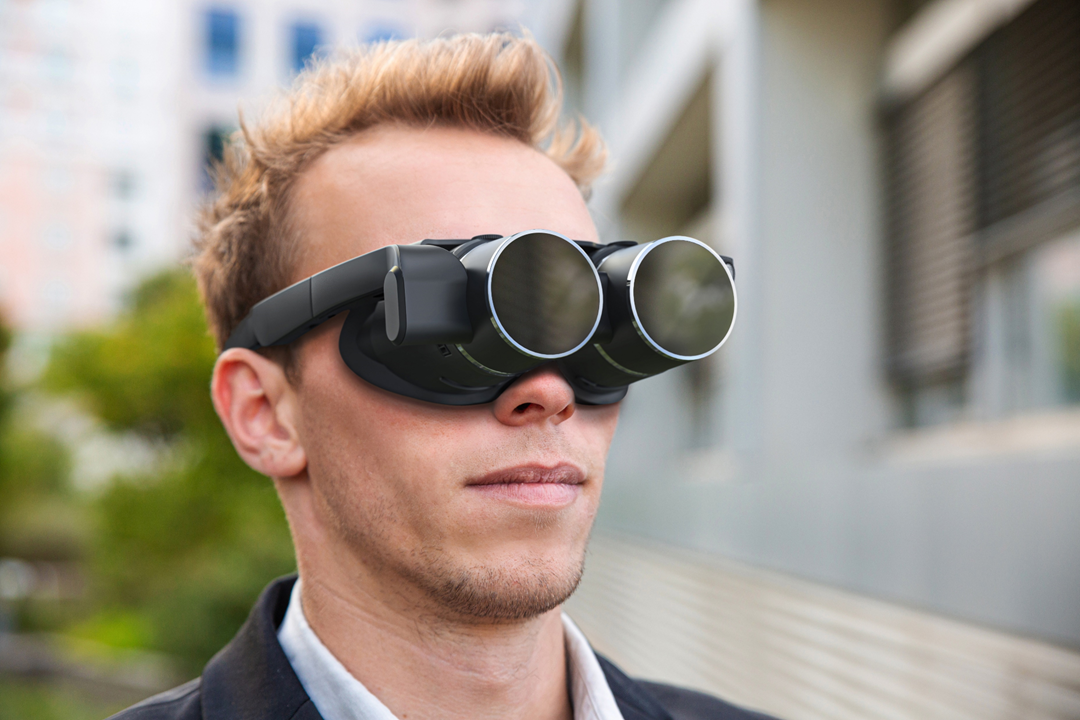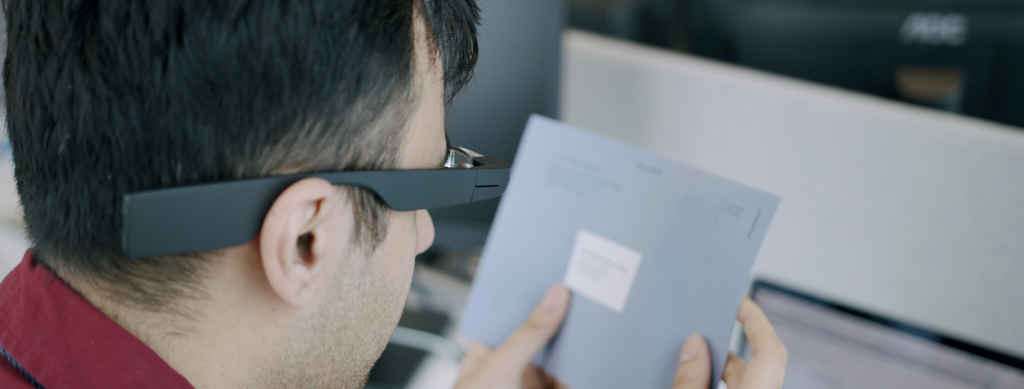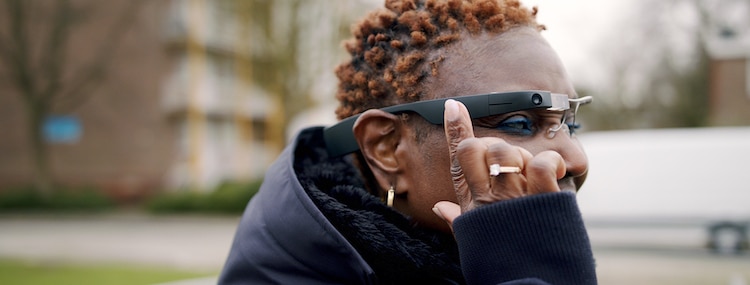OCR Devices for the Blind: Breaking Barriers with Optical Character Recognition
OCR Devices for the Blind: Breaking Barriers with Optical Character Recognition
Blog Article
Discover Advanced Assistive Devices for People With Aesthetic Disabilities
The landscape of assistive innovation for individuals with visual problems is progressing rapidly, presenting a series of cutting-edge tools that enhance autonomy and engagement (Braille displays and notetakers). From clever glasses that flawlessly combine aesthetic input with acoustic assistance to advanced navigation applications that redefine spatial awareness, these tools are improving opportunities. In addition, the most up to date innovations in Braille innovation and voice-activated systems substantially add to accessibility. Nevertheless, the ramifications of these growths prolong far beyond simple performance; they challenge traditional assumptions of disability and self-reliance. What might this suggest for the future of addition and assistance?
Smart Glasses Innovations
Smart glasses stand for a considerable improvement in assistive innovation for individuals with aesthetic problems. Geared up with electronic cameras and sensors, wise glasses can capture real-time aesthetic details, which is after that refined and communicated to the individual with sound feedback or haptic experiences.
In addition, advancements in man-made intelligence have actually better improved the capacities of clever glasses. Artificial intelligence algorithms can identify faces, reviewed message, and recognize objects, making them vital devices for day-to-day jobs. Users can receive acoustic signs that supply context about their atmosphere, cultivating independence and self-confidence.
In addition, the ergonomic style and lightweight nature of lots of clever glasses make them appropriate for prolonged use, making sure comfort while improving functionality. As these devices remain to develop, they hold the potential to reinvent the means individuals with visual problems experience their daily lives, connecting the void between availability and technology. The continuous study and advancement in this area assurance to expand the opportunities for clever glasses, making them a necessary component of contemporary assistive tools.
Navigation Application and Tools
Numerous navigation apps and tools have actually emerged as essential resources for individuals with aesthetic disabilities, substantially boosting their ability to go across unfamiliar environments. These innovations take advantage of general practitioner capability, audio cues, and real-time data to offer individuals with exact navigating support.
One famous instance is the Aira app, which links users to qualified agents who can supply visual summaries of environments and navigating assistance via a real-time video clip feed. This service improves the user's spatial awareness and confidence while navigating. Another noteworthy tool is Seeing Eye GPS, which provides voice-guided navigation and sights, allowing individuals to access vital details concerning their environments.

As technology continues to advance, the development of extra innovative navigating devices assures to additional empower individuals with visual disabilities, promoting smooth mobility and assimilation into varied settings. Such developments are important in promoting an extra comprehensive society.
Braille Technology Innovations
Over the last few years, innovations in Braille innovation have actually dramatically transformed exactly how individuals with aesthetic problems accessibility info and engage with the globe around them. The advancement of portable Braille display screens has actually reinvented reading by allowing customers to link wirelessly to tablets, computer systems, and mobile phones. These tools convert message right into Braille in real-time, allowing seamless communication with electronic content.
Additionally, innovative Braille printers have actually arised, boosting the production of tactile materials. Modern embossers are much faster and more efficient, enabling the fast production of Braille records and academic materials. This performance lowers the time and expense related to generating Braille resources, making them a lot more available to organizations and colleges.
Additionally, the combination of Braille with various other innovations, such as synthetic knowledge and machine discovering, has actually opened up new methods for tailored understanding experiences. Voice recognition and synthesis innovations can complement Braille, supplying an inclusive strategy to information circulation.
As the need for inclusive education and learning and work environment atmospheres grows, these technical advancements play a vital duty in equipping people with visual disabilities, guaranteeing they have equal access to info and chances in numerous aspects of life.
Wearable Gadgets for Self-reliance
An expanding variety of wearable tools is enhancing independence for people with visual problems, supplying ingenious options that boost navigating and everyday living. Braille displays home and notetakers. These gadgets use sophisticated modern technologies to provide real-time comments and support, promoting autonomy in various environments

Wearable innovation also consists of smartwatches that can be programmed with ease of access attributes, allowing customers to obtain alerts, track their places, and even call for aid with the touch of a button. Some tools integrate man-made knowledge to assess the atmosphere, offering sound summaries of close-by objects or people.
Voice-Activated Assistive Solutions
Leveraging voice-activated assistive options has transformed the landscape of assistance for individuals with visual problems, providing hands-free interaction and access to a range of tasks. These technologies make use of natural language processing and artificial intelligence to allow customers to perform daily tasks through easy voice commands.

Furthermore, recent developments in voice recognition precision have actually enhanced the individual experience substantially, fitting diverse accents and speech patterns. This inclusivity ensures that more people can profit from these modern technologies, cultivating a better what is optometry course feeling of freedom.
Verdict
To conclude, the growth of advanced assistive gadgets significantly enhances the self-reliance and top quality of life for people with visual disabilities. Technologies such as clever glasses, navigating apps, Braille technology, wearable tools, and voice-activated services collectively promote a more inclusive atmosphere. These innovations equip individuals to navigate their environments with confidence and involve even more completely with the globe, ultimately advertising higher ease of access and level playing Get More Info fields for people dealing with aesthetic difficulties.
The landscape of assistive innovation for individuals with visual disabilities is developing rapidly, offering a variety of innovative tools that boost autonomy and engagement.Smart glasses represent a substantial improvement in assistive innovation for individuals with visual problems. As these gadgets continue to evolve, they hold the prospective to revolutionize the method people with visual impairments experience their day-to-day lives, linking the gap between access and technology.In current years, advancements in Braille innovation have actually dramatically transformed just how people with visual problems accessibility information and involve with the globe around them. These innovations empower customers to browse their environments with confidence and engage more fully with the world, inevitably advertising greater availability and equivalent opportunities for individuals dealing with aesthetic challenges.
Report this page